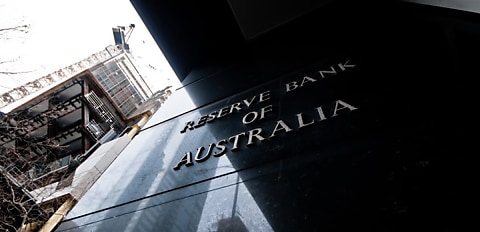The highly anticipated 3Q24 Consumer Price Index (CPI) data is expected to finally fall within the Reserve Bank of Australia’s (RBA) target band of 2–3 per cent, according to bank economists.
As mentioned by the RBA time and time again, keeping inflation under control has been the primary mission since it began its monetary policy tightening cycle over two years ago in May 2022, when the COVID-19-era emergency level cash rate of 0.1 per cent came to an end.
The official cash rate has been held at 4.35 per cent for almost a year since the last interest rate hike in November 2023.
Since reaching a 33-year high of 7.8 per cent during the December quarter of 2022, annual inflation has steadily been moderating and declining, with annual inflation now sitting at 3.8 per cent (June 2024 quarter).
The latest monthly inflation figures for August 2024 revealed a further drop to 2.7 per cent and, while this is within the target band, the RBA looked through this data due to the volatility in the monthly inflation prints.
With the September quarter CPI figures due on 30 October, economists foresee a significant decline in inflation due to various energy rebates and cost-of-living assistances further driving inflation down into the target band.
ANZ senior economist Catherine Birch said that headline inflation is expected to slow to 0.3 per cent quarter on quarter and trimmed mean to print at 0.8 per cent quarter on quarter for the second quarter in a row.
This would effectively see annual headline inflation fall 0.9 percentage points to 2.9 per cent year on year.
“But the electricity expenditure class alone is estimated to subtract 0.4 percentage points, reflecting federal and state rebates. The headline measure will not accurately reflect underlying inflationary pressures through the rest of 2024 and 2025,” Birch said.
The more important annual trimmed mean inflation is forecast to decline 0.4 percentage points to 3.5 per cent y/y. This will not be directly affected by the electricity rebates.
“Our forecast appears largely in line with the RBA’s expectation based on our reading of the August Statement on monetary policy forecasts. We see the risks to our trimmed mean call as largely balanced,” Birch said.
Furthermore, senior economist at Westpac, Justin Smirk, said that fuel and rebates are “shaving half a per cent off the CPI”, confirming that the major bank’s economics team also expects the 3Q24 CPI to hit 2.9 per cent annually, with a further drop in the September monthly CPI to 2.2 per cent.
“We expect the underlying pace of inflation, which excludes most of the impact of those rebates/assistance, continue to moderate,” Smirk said.
“Our trimmed mean estimate for the September quarter remains 0.7 per cent per quarter, with the annual pace easing back to 3.5 per cent from 3.9 per cent in the June quarter.
“The September CPI is expected to be consistent with our view that core inflation will be back around 3 per cent per year by early 2025, if not sooner.”
Judo Bank economist Matthew De Pasquale said anything above 0.8 per cent trimmed mean would “push the RBA to act”.
“The current consensus is for a trimmed mean print of 0.8 per cent,” De Pasquale said.
“Resilient labour markets, a strong retail trade result in August, elevated core inflation, and improved household disposable incomes from government stimulus and easing financial conditions all point to the need to maintain restrictive monetary policy or potentially take out further insurance to ensure the economy isn’t thrown off the narrow path.”
[RELATED: RBA tackles inflation expectations in its latest analysis]

